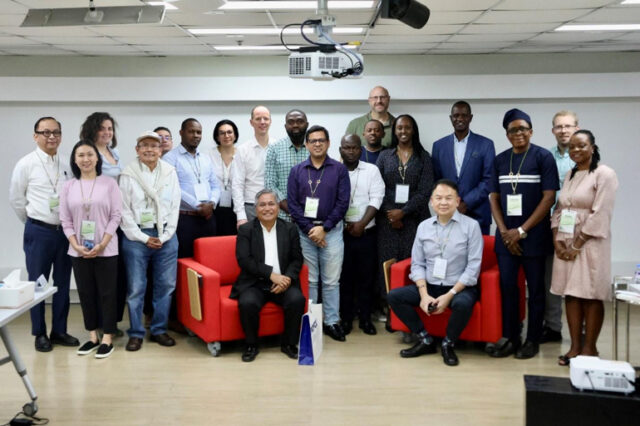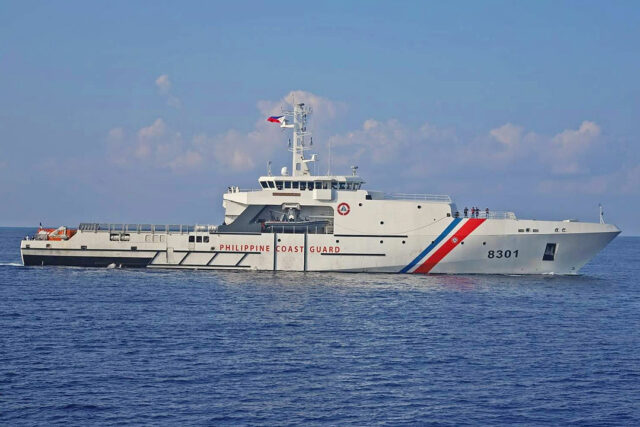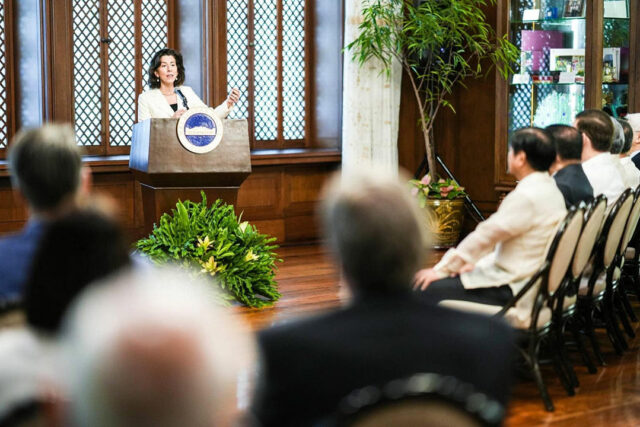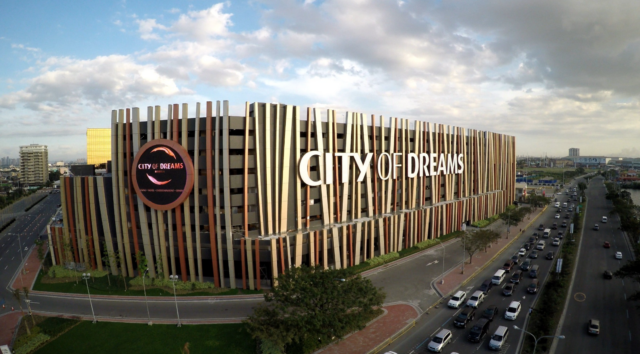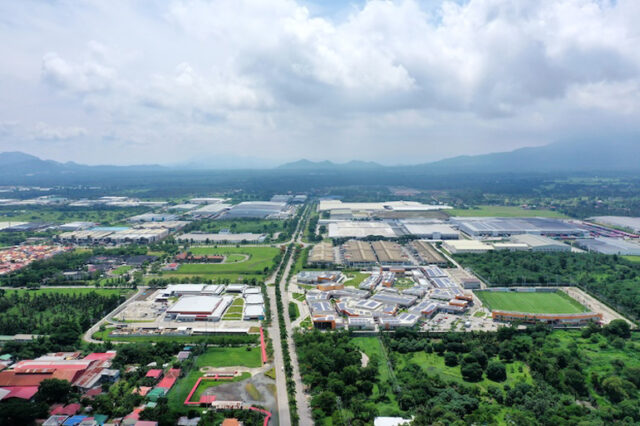By Kyle Aristophere T. Atienza, Reporter
PRESIDENT Ferdinand R. Marcos, Jr. said on Monday the Philippines wants US semiconductor companies to set up wafer fabrication facilities locally as part of the American push to bolster US competitiveness in an industry viewed as essential to national and economic security.
US President Joseph R. Biden, Jr. sent a trade and investment mission to the Philippines on Monday, almost a year after Mr. Marcos had a state visit to Washington and as the two nations take their security alliance to the next level amid an increasingly belligerent China.
The Southeast Asian nation is “ready to meet the expanding needs of high-technology industries,” the Philippine leader told a 22-delegation US trade and investment mission to Manila led by Commerce Secretary Gina Raimondo, reiterating a Philippine plan to crank out more than 120,000 engineers and process technicians by 2028 to boost output.
“With our standing proposition to the US semiconductor companies to invest in a laboratory-scale wafer fabrication facility in the Philippines, we can support the R&D and advanced assembly, packaging and test requirements of US companies that are into semiconductors and electronics manufacturing services,” he added.
The Philippines is one of seven countries that the US is partnering with to diversify its semiconductor supply chain under the CHIPS and Science Act. The 2022 law provides $52.7 billion in federal subsidies to support chip manufacturing and persuade chipmakers with operations in China to relocate to the US or other friendly countries.
Mr. Marcos said his government seeks to create a pool of Filipino professionals who can create prototypes and tape-outs of integrated circuits and engage in the development of “cutting-edge, high-value products and services.”
During his visit to Washington in May last year, he asked the US Semiconductor Industry Association to support the planned establishment of a Philippine wafer fabrication facility, which can support a science and technology center proposed by the Semiconductor and Electronics Industries in the Philippines Foundation, Inc. (SEIPI).
The semiconductor and electronics sector is responsible for about 60% of the country’s merchandise exports.
The 22-member delegation included executives from geothermal energy company GreenFire Energy, Inc, Google Asia-Pacific, global engineering company Black & Veatch Corp., Visa, Inc., satellite communication technologies firm EchoStar/DISH, tech consulting company InnovationForce, and United Airlines.
Also in Manila were executives from United Parcel Service, Boston Consulting Group, global investment company KKR, low-carbon feed and fuel solutions producer Marquis, solar energy solutions company Sol-Go, Capital One Philippines, and engineering and project management company Bechtel.
Also present during the meeting were executives from global delivery services company FedEx, Mastercard, Microsoft Corp., data security company UltraPass ID, and energy company Ultra Safe Nuclear Corp.
‘ACTIONABLE MEASURES’
At Monday’s meeting at the Presidential Palace, the Philippine side raised the situation of Philippine electronics companies unable to bid on US government contracts due to a requirement in the US Trade Agreements Act.
Trade Secretary Alfredo E. Pascual said the Philippine government is hopeful that the trade mission “will result in actionable measures.”
He said the Philippines is an important player in the critical metals sector with the country’s significant nickel, copper, and cobalt reserves.
“Leveraging these rich mineral reserves, the Philippines aspires to lead the global value chain for energy storage and electric vehicle (EV) production,” he said, citing the Philippines’ amended renewable energy law, which allows full foreign ownership in the sector.
Mr. Pascual said the US government support for workforce development under the CHIPS Act would help the Philippines expand its role in the semiconductor industry beyond assembly and packaging.
The Philippine government also sought assistance from the US Department of Commerce on trade issues like detained apparel exports and shrimp paste shipments.
Ms. Raimondo, the US Commerce chief, said the US private sector’s interest in the Philippines and other Southeast Asian nations is “very high.”
“But it is with the Philippines that we have longest ties and access, and that’s important,” she said.
The whole Indo-Pacific region, which accounts for 40% of the world’s economy, is at the top of US companies and investors’ list, she added.
The US is the Philippines’ third-largest trading partner, with total trade reaching about $20 billion. It’s also the largest export market for Philippine goods, valued at $12 billion.
The Philippines under Mr. Marcos has taken its security and defense alliance with the US to the next level amid an expansionist China, which claims the South China Sea almost in its entirety.
Mr. Marcos in February last year gave Washington access to four more Philippine military bases on the top of the five existing sites under the 2014 Enhanced Defense Cooperation Agreement, a deal that has angered China, Manila’s largest trade partner.
George N. Manzano, a trade expert at the University of Asia and the Pacific, said the US trade mission is a confidence-building measure on the part of Washington as it increases its ties with Manila on the security front.
“You have more economic interaction, then the level of comfort in dealing with the Philippines will also increase,” he said in a phone interview. “It’s complimentary.”
“You have to start with a trade mission, then after that you look for partners, and after that you finalize the details. Any initiative in this regard is welcome,” he added.
The US and China have been locked in a trade war since 2018, when then-President Donald J. Trump announced a plan to impose a 25% tariff on Chinese exports worth $50 billion.
Mr. Manzano noted that most of the companies that participated in the mission were in the services sector, particularly in the financial sector.
He said China is likely to remain a major trade partner of the Philippines as it is more competitive than the US in terms of goods or products.
“Chinese products are competitive. China is very good in manufacturing products whereas the US is good in financial services,” he said. “China has a different competitive advantage.”
Mr. Manzano expects the two treaty allies to increase their bond on semiconductors as Washington continues to diversify its sources of critical minerals and is expected to further restrict Chinese semiconductor development through sanctions.
“The Philippines wants a higher economic growth trajectory, while also not increasing dependency on China,” said Jeffrey Ordaniel, director for maritime security at Pacific Forum and an associate professor of international security studies at the Tokyo International University.
Failing to diversify is a threat to Philippine security “given how dependence on China could be used as a lever through which Beijing could coerce Manila in the future,” he said in an X message, citing the two countries’ dispute at sea.
“The US wants to ensure the Philippines maintains its agency on foreign and security policy and not be beholden to China.”
Terry L. Ridon, an investment analyst and convenor of InfraWatch PH, said the trade mission is expected to result in “meaningful economic gains” particularly in the area of infrastructure, digital services and business process outsourcing.
“The trade mission should also look into the role of US private equity in increasing investments in the Philippines, particularly in growth sectors such as digital services and infrastructure,” he said via Messenger chat.
“More than product exchanges, it is important to determine whether these new opportunities can translate into new or higher value jobs to Filipinos, such as when new offices or factories are opened as a result of broadening bilateral relations.”



